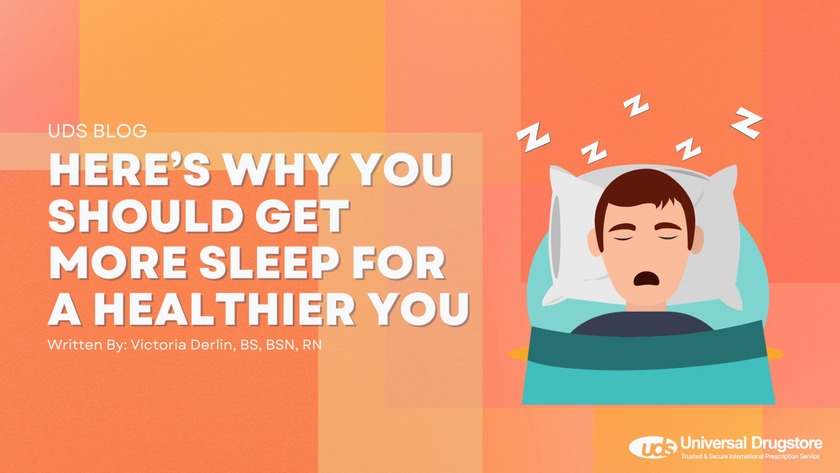Getting enough sleep is an important factor in living a healthy lifestyle. Here are a few reasons why changing your sleep habits changes your health!
What is something we all want but most of us don’t get enough of? A good night’s sleep is definitely a popular answer to that question! Unfortunately, a lot of us suffer from sleep deprivation, sleep apnea, or a general lack of quality sleep in our normal routines. However, research shows that getting enough sleep is an important factor in living a healthy lifestyle.
There is a saying that people use, “I’ll sleep when I’m dead,” that promotes sleep deprivation and sleep problems that comes with a heap of health conditions. There have been several studies done and articles written that all conclude that a lack of sleep will negatively affect your health in a variety of ways. Cut out your naps, your sleepiness, an let’s dive into some recent research and articles on better sleep.
Don’t Sleep With The Lights On
A small research study published in March 2022 suggests that sleeping with a moderate amount of light can have negative effects on cardiovascular health, your heartrate, and metabolism. The study had 20 participants. On the first night of the study, they had all the participants sleep in a completely dark room. On the second night, they had half of the participants sleep in a room with 100 lux of overhead light. 100 lux of light is described as enough light to be able to see to get around the room but not enough light to read. The researchers conducted tests on the participants during sleep and after waking up. They concluded from their research that sleeping with light can interfere with metabolism and can increase the risk of chronic health problems. The people who slept with the light on had increased insulin resistance in the morning which puts them at an increased risk of many chronic diseases (Mason, et al. 2022).
A Lot of People Don’t Get Enough Sleep
A recent survey conducted in January 2022, found that only ⅓ of Americans report getting good quality sleep. The survey had over 3,000 participants. One of the main points that were highlighted was that emotional and mental health were important factors that contribute to the quality of sleep. 96% of the survey participants reported that with increased stress, their restlessness and general brain function also increased.
The researchers that conducted the survey suggest that nutrition, exercise, environment, and mental health are all factors that contribute to a person’s sleep quality (Dean, 2022).
Your Body Requires Sleep To Function
The National Institutes of Health did an article in May 2021 about why sleep is important to overall health. Dr. Marishka Brown was quoted saying, “Healthy sleep encompasses three major things, one is how much sleep you get. Another is sleep quality-that you get uninterrupted and refreshing sleep. The last is a consistent sleep schedule”.
Dr. Maiken Nedergaard says that sleep is important for the brain. During sleep, your brain is working by draining toxins. Per Dr. Nedergaard, “When we sleep, the brain totally changes function…it becomes almost like a kidney, removing waste from the system”.
Dr. Kenneth Wright Jr says that adequate sleep is when your body repairs everything from your blood vessels to your immune system. Per Dr. Wright, “There are certain repair processes that occur in the body mostly, or most effectively, during sleep…If you don’t get enough sleep, those processes are going to be disturbed” (U.S. Department of Health and Human Services, 2021). Sleep helps you cleanse and create a more successful day.
You Will Probably Gain Weight If You Aren’t Sleeping Enough
A 2022 study published in the Journal of American College of Cardiology studied the effects of having an inadequate amount of sleep on weight gain. Researchers found that a lack of sleep led to a 9% increase in abdominal fat (Covassin, et al. 2022).
Another similar study published in 2022, in the JAMA Internal Medicine Journal analyzed increased sleep and the effects on calories consumed. There were 80 participants that normally only slept 6.5 hours a night. They had a portion of the participants increase their sleep time to 8.5 hours a night for two weeks. The researchers found that the participants who got more sleep, over insufficient sleep, consumed 270 fewer calories daily. They concluded that getting enough sleep could help lose weight and prevent obesity (Tasali, et al. 2022).
Improving Your Sleep
As you can see from the research and articles we reviewed, sleep comes with drastic health benefits. This could be considered a public health issue as thousands of adolescents, school-age children, young adults, and even older adults are staying up late scrolling through tik-tok or watching Netflix. This often disrupts their sleep patterns, rem sleep, and general sleep needs. Some people have no issues falling and staying asleep
while others struggle. If you have struggled with sleep there are several methods you can try to help. Sticking to them on a regular basis is helpful in getting the correct number of hours of sleep. For example, it isn’t recommended to jump straight to sleep medicine because your body can build a tolerance to these and you may need more as time goes on. A healthier option is to try lifestyle changes first.
First, be consistent with your sleep, honoring the stages of sleep. Choose a bedtime and wake time to stick to. Try this out for at least a week and see what happens. Our bodies like schedules and consistency. Your body will get used to the schedule and will start to get used to going to bed and waking up at the same time every day.
Make your bedroom optimal for sleep. You want it dark while sleeping. Getting black-out curtains may be a good investment. Make sure the temperature in the bedroom is comfortable for you. If needed, try a fan that will provide a soothing noise and cooler temperature. Bedding is also a good investment if you have trouble sleeping. Getting bedding that you like helps you relax.
Get rid of all electronic devices while you are sleeping. This includes TVs, phones, tablets, and computers. The light that these electronics give off will keep you awake and promotes poor sleep.
During the day make sure to get some exercise. Getting physical activity is good for your health in several ways including combating sleepiness during the day and improving your quality of sleep at night. Avoid large meals before bedtime. Having meals before bedtime could cause acid reflux and no one wants to go to bed feeling bloated. Avoid caffeine during the later day hours. Consuming caffeine late in the day can hinder good sleep habits.
Do something before bed to help you relax and wind down from your day. Try a bath, reading a book, or drawing to help clear your mind before laying down for the night.
If you try these methods and are still struggling with sleep, make an appointment to discuss your sleep difficulties with your healthcare provider. Start keeping a sleep journal to track how much sleep you are getting and to analyze any factors that may be affecting your sleep. Don’t give up on getting good sleep. It is important to your health and well-being to get good sleep.
About the Author
Victoria Derlin is a nurse who started her career working in acute care and now works in primary care. She is passionate about advocating for nurses and patients. In her spare time, she rides horses, reads lots of books, bakes delicious pies, and spends time with her family. You can connect with her on instagram @nurse.vicki.rn
Resources
Covassin, N., Singh, P., McCrady-Spitzer, S. K., Louis, E. K. S., Calvin, A. D., Levine, J. A., & Somers, V. K. (2022, March 28). Effects of experimental sleep restriction on Energy Intake, energy expenditure, and visceral obesity. Journal of the American College of Cardiology. Retrieved April 4, 2022, from
https://www.sciencedirect.com/science/article/abs/pii/S0735109722003102
Dean, J. (2022, March 15). A third of U.S. adults are struggling to get a good night's Rest, a survey finds. NPR. Retrieved April 4, 2022, from
https://www.npr.org/2022/03/15/1086691330/a-third-of-u-s-adults-are-struggling-to-get-a-good-nights-rest-a-survey-finds
Mason IC, Grimaldi D, Reid KJ, Warlick CD, Malkani RG, Abbott SM, Zee PC. Light exposure during sleep impairs cardiometabolic function. Proc Natl Acad Sci U S A. 2022
Stone, W. (2022, April 1). Sleeping with even a little bit of light isn't good for your health, study shows. NPR. Retrieved April 4, 2022, from https://www.npr.org/sections/health-shots/2022/04/01/1089997121/light-disrupts-sleep
Tasali, E., Wroblewski, K., & Kahn, E. (2022, April 1). Effect of sleep extension on energy intake among adults with overweight. JAMA Internal Medicine. Retrieved April 4, 2022, from https://jamanetwork.com/journals/jamainternalmedicine/fullarticle/2788694
U.S. Department of Health and Human Services. (2021, May 3). Good sleep for good health. National Institutes of Health. Retrieved April 4, 2022, from https://newsinhealth.nih.gov/2021/04/good-sleep-good-health









